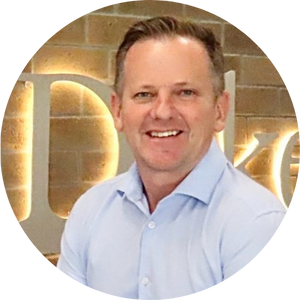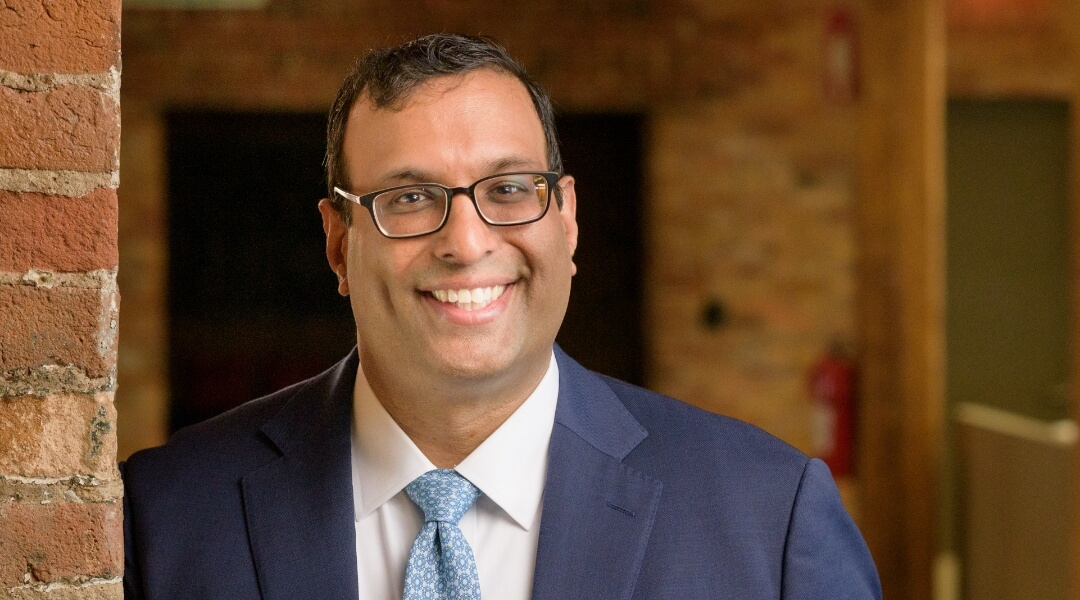The power of custom executive education
Leaders today face a myriad of challenges in the global landscape, each with its own unique complexities and incalculable uncertainty. Geopolitical tensions disrupt supply chains, increase market volatility, and introduce uncertainty into business operations.
Artificial intelligence (AI) presents both opportunities and challenges for corporate leaders. Embracing AI can enhance efficiency, innovation, and decision-making. However, it also raises ethical concerns, such as job displacement and data privacy.
Increasingly, businesses are under pressure to adopt sustainable strategies, address social issues, and uphold strong governance standards. Balancing these demands with profitability can be a delicate task.
Add to the already complex matrix of challenges the current economic instability and rapidly changing consumer behaviors.
Leaders face a near perfect storm of change and unpredictability.
How then do successful leaders navigate this new complex landscape with agility while balancing financial objectives with social and environmental responsibilities?
Duke Corporate Education (Duke CE), ranked #1 in Custom Executive Education worldwide by the Financial Times has identified key insights from leading clients across the globe.
The big picture just got bigger
Lee-Ann Samuel, Group Executive: People for mining giant, Impala Platinum, says leaders need strategic dexterity to meet these challenges.
“Leaders need to be able to look through a bigger window in terms of business. They need to not only be business leaders, but they need to think about leadership within a societal context and impact and how to embrace things,” she says.
Caroline Vanovermeire, global Director of Talent, Leadership and Organizational Development at dentsu, agrees.
“Every organization needs to realize they’re part of a bigger system. The consumer wants to liaise with a brand, and I want to be able to trust that brand and that brand needs to have integrity.”
Vanovermeire says this is only sustainable if approached holistically and systemically, which requires being “ultra collaborative.”
Dentsu’s vision “of being at the forefront of people centered transformations that shape society” implies this.
Samantha Fernando Director Clients & Leadership at Aurecon predicts consulting firms that cannot help clients navigate these challenges will fall by the wayside.
“More and more companies are getting less and less interested in being bamboozled by greatness and want to understand how to obtain sufficiency, what are the must win battles and how to eliminate the unnecessary noise that goes along with strategy.”
This means custom executive education needs to constantly evolve to meet the unique and ever-evolving needs of clients. Old methodologies of learning are well beyond their expiry date.
Be agile
Agile leaders possess the ability to navigate uncertainty and seize opportunities faster. They foster a culture of innovation, learning and collaboration among teams.
Lee-Ann Samuel says mental agility is a learned behavior.
“It needs to be trained. We empower our managers through, for example, a management program with Duke CE to start getting them to change the way they think about issues like ESG,” she says.
Head of the Duke CE ESG Leadership Academy, Andrés Saint-Jean, says agility is key to operate in an era where the rules around business are changing so quickly and they need to maintain their social license to operate.
“Research has shown that if you really want to change organizational culture you need to bring onboard at least 20 to 30 percent of the organization.”
Shift mindsets
Caroline Vanovermeire says shifting mindsets is both a personal and organizational challenge.
“It is important to constantly evolve yourself to stay relevant and make time for your own self development, because you’re the tool to create the environment where also other people strive. And if you limit yourself, you’ll limit all the colleagues that ultimately, you’re accountable to lead and create that thriving environment for,” she says. Evolving yourself is one of five leadership expectations at dentsu, together with grow your talent, delight clients, activate radical collaboration and set the direction.
“There is no right answer,” says Samantha Fernando, warning leaders need to guard against falling into their own mindset traps held on outdated beliefs.
“It is the ability to explore the diversity of thought, create spaces for those conversations to be taking place. It is the ability to explore multiple perspectives.”
She says certainty is not a reality. It is the ability to hold multiple perspectives and having the courage to let go of the strategies that made organizations successful in the past that will help leaders navigate today’s challenges.
Jessica Bickoff, Senior Manager of Talent Development at Textron says educators are critical to helping leaders and their teams see the world in new ways.
“In terms of our partnership with Duke CE I feel incredibly fortunate to have taken on this relationship and this program. Consistently year after year, the feedback is excellent. People are just blown away by their experience with the faculty.”
Embrace diversity
Caroline Vanovermeire highlights the enriching experience of diversity and the benefit of broadening networks. Leaders should appreciate the value of working with people who are different from themselves, as it leads to broader perspectives and more innovative solutions.
“When employees realize they can now connect with different people there is a huge benefit of broadening their network, broadening the diversity of thought when working on solutions.” One of the most impactful benefits of Leading a Profitable business, our executive leadership programme with Duke CE, one year on from the experience, is a broadened and diverse network, willing to be your thinking partner on any challenge or opportunity.
The power of investing in employees
After Covid-19 the world experienced a greater turnover in staff.
“We saw labor turnover happen over a period of time because of uncertainty of the sustainability of the organization. So people were wanting job security and they were looking for work-life balance” says Sashir Milne of Tongaat Hulett.
Says Milne, “So essentially what we found in our talent reviews was that over the years we had not invested in nurturing employee talents.”
Vanovermeire of dentsu agrees.
“People don’t leave organizations but leave leaders. When people are uncertain, they pull back to someone they can trust; someone they could reach out to in order to help them make sense of the world or the complexity or feel vulnerable with and share their insecurities,” she says.
Custom executive education, whether large or small programs, offers leaders the ability to tackle very unique challenges and barriers to success in their organization during tumultuous times and high employee anxiety.
Rethinking recruitment
Leaders should prioritize recruiting for skills and behaviors rather than solely focusing on qualifications. They need to look beyond technical qualifications and seek individuals who are agile, responsive, curious, collaborative, and adaptable to the changing world of work.
“The question needs to be asked. Are we recruiting for a job or are we recruiting for skills? Too often we look at qualifications as opposed to skills and behaviors that will ensure that an individual is agile and responsive to the world around them and within the organization. Do they have the curiosity to evolve as the world evolves and the ability to collaborate and work in teams,” questions Sashir Milne.
Textron’s Jessica Bickhoff says employees with “innovation and creativity” are becoming increasingly important in the workplace to meet the complex challenges business faces.
Custom experiences help teams develop their skills, share expertise and focus on delivery rather than creating a hierarchy depending on past educational achievements.
Be borderless
Cross-functional and cross-business unit collaboration is essential for sharing challenges and solutions.
Textron’s Jessica Bickoff highlights the value of peer relationships and how they contribute to learning, sharing best practices, and expanding networks.
“You might imagine people are going across the different business units to share the challenges, share the solutions that they figured out. But they’re not doing this as often as you might think that they are.
So, through the existence of Duke CE’s program we’re answering the challenge of keeping people connected in an ever increasingly connected world.”
Tongaat Hullet’s Sashir Milne says Duke CE helped breakdown borders through its learning programs.
“Engaging with their peers in different countries and understanding where they had shared problems and learning from each other, where people had similar problems and resolved them, so there was a lot of learning and collaboration across the borders.”
Developing skills internally through microlearning and partnering with institutions that can help leaders stay ahead of the evolving world of work is crucial. Institutions like Duke CE play a vital role in providing insights and preparing leaders for future challenges.
“The world of work is evolving so fast that we need to be partnering with institutions that are evolving as fast as we are and helping us to look towards the horizon. I have a picture of a meerkat in my head, you know, so getting us all to look up and see what’s coming and prepare us for that,” says Sashir Milne.
Communication
Effective communication is key to keeping people focused on the organization’s strategy. Leaders should strive for transparency, motivation, engagement, and strong communication from top to bottom to foster a cohesive and aligned workforce.
Caroline Vanovermeire says leaders nowadays must be “ambidextrous.”
“It is a super complex environment externally, but also internally. Why we engage Duke CE is to help our new senior leaders to actually be equipped to not only navigate that change and that ambiguity, but also lead that transformation and change.”
By building relationships teams can co-create, engage and communicate to deliver a solution. The more companies can increase these collaborative “margins” the greater the dividend of a sustainable company, she says.
Pick your partner wisely
Tongaat Hulett’s Sashir Milne says custom executive education partners must offer three things: understand your business, offer a return on investment and provide a superior learning experience.
Dentsu’s Caroline Vanovermeire gives Duke CE an 11 out of 10 as a partner.
“The reason why I’m saying that is because it is a compliment when you liaise with senior stakeholders, or other colleagues, and they can’t tell who is a dentsu employee and who is Duke CE.”
Says Milne, Duke CE has become a trusted advisor.
“They go above and beyond to try and achieve that. The teams have been phenomenal and helping us to reflect on where we are as an organization, where we wanted to be, and who are the best educators to help us get to where we want to get to.”
Lee-Ann Samuel of Implats echoes this view.
“Duke CE has become an extension of our business. They are part of the family and as the business evolves, Duke CE has stayed abreast of the business changes and have had the ability to incorporate that into the program and to ensure that it maintains relevance.”
Leaders today face a complex and ever-changing landscape. By embracing strategic dexterity, agility, diversity, employee investment, and effective communication, leaders can navigate these challenges successfully. Partnering with reputable institutions like Duke CE can provide valuable insights and support to help leaders thrive in this new paradigm.




